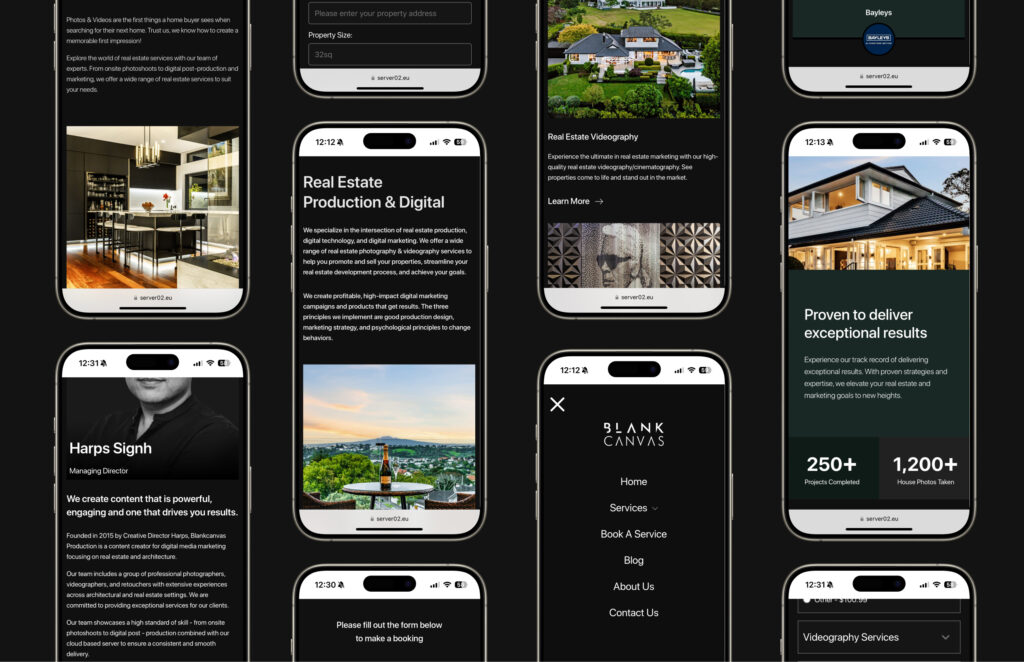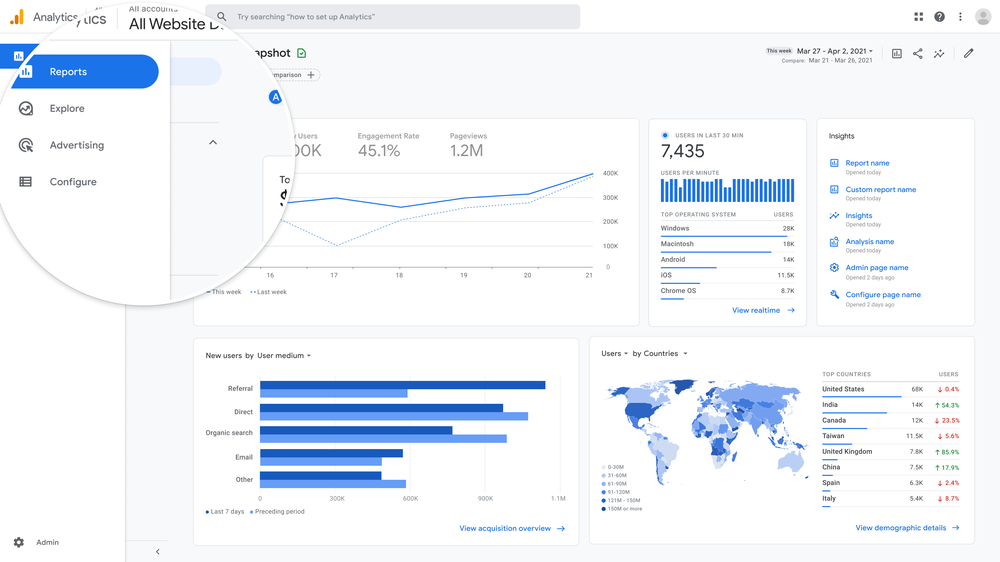Why Every Small Business Needs a Mobile-Responsive Website
In today’s digital world, having a website is essential for small businesses, but it’s no longer enough to have a site that only looks good on a desktop. With more people accessing the internet through their smartphones and tablets, having a mobile-responsive website is critical for reaching and engaging customers. A mobile-responsive design ensures that your website adapts seamlessly to different screen sizes, providing an optimal user experience across all devices.

In today’s digital world, having a website is essential for small businesses, but it’s no longer enough to have a site that only looks good on a desktop. With more people accessing the internet through their smartphones and tablets, having a mobile-responsive website is critical for reaching and engaging customers. A mobile-responsive design ensures that your website adapts seamlessly to different screen sizes, providing an optimal user experience across all devices.
In this post, we’ll explore why every small business needs a mobile-responsive website and how it can help you stay competitive, capture more customers, and boost your online presence.
The Rise of Mobile Usage
Mobile devices are now the primary way people browse the internet. Whether they’re searching for local services, shopping online, or checking reviews, customers increasingly rely on their smartphones for quick and easy access to information. For small businesses, this means that if your website isn’t mobile-friendly, you risk losing a significant portion of your audience.
Key Mobile Usage Statistics:
- Over 50% of global website traffic now comes from mobile devices.
- 74% of mobile users are more likely to return to a mobile-friendly website.
- 61% of users are unlikely to return to a website if they had trouble accessing it on their mobile device.
A mobile-responsive website ensures that your business remains accessible to customers no matter where they are, improving engagement and driving more traffic to your site.
Enhancing User Experience Across All Devices
User experience (UX) is one of the most important factors in the success of your website. If visitors land on your site and find it difficult to navigate or interact with, they’re likely to leave — resulting in lost leads and sales. A mobile-responsive website ensures that users on smartphones and tablets have the same smooth experience as those on desktop computers.
Why User Experience Matters:
- Easy Navigation: Mobile-responsive websites are designed to be easily navigable, with menus, buttons, and content adjusting to fit smaller screens. This prevents users from having to zoom in or struggle with tiny buttons.
- Fast Loading Times: Mobile-responsive sites are optimised for speed, ensuring that pages load quickly on mobile devices. Slow-loading websites frustrate users and can lead to higher bounce rates.
- Touch-Friendly Design: A responsive website takes into account the way users interact with their devices, ensuring that buttons and links are large enough to tap easily.
By providing a positive user experience on mobile, your website will keep visitors engaged, increasing the likelihood that they’ll take action, whether it’s making a purchase, contacting you, or signing up for your services.

Boosting Your Search Engine Rankings
Search engine optimisation (SEO) is crucial for getting your website in front of potential customers, and mobile responsiveness plays a significant role in how search engines rank your site. In 2018, Google implemented mobile-first indexing, meaning that it primarily uses the mobile version of your website when determining rankings.
How Mobile-Responsive Design Improves SEO:
- Mobile-First Indexing: Google prioritises websites that are mobile-responsive. If your site isn’t optimised for mobile devices, you could see a drop in your rankings, making it harder for potential customers to find you.
- Lower Bounce Rates: A mobile-responsive site reduces the likelihood that visitors will leave after viewing just one page, which is a positive signal to search engines.
- Improved Page Speed: Mobile-optimised websites tend to load faster, and page speed is a ranking factor in Google’s algorithm.
With a mobile-responsive website, you’re not only providing a better experience for your users but also improving your chances of ranking higher in search results — driving more organic traffic to your site.
Catering to Local Search and “Near Me” Queries
For small businesses, local search is a powerful tool for attracting customers. Many people use their mobile devices to search for businesses, especially when they’re looking for nearby services. Phrases like “restaurants near me” or “plumbers in Auckland” are common in mobile searches, and Google often tailors results based on the user’s location.
How Mobile-Responsive Design Supports Local SEO:
- Google My Business Integration: A mobile-responsive website works hand-in-hand with local SEO efforts like Google My Business, ensuring that your business appears in local search results and map listings.
- Mobile-Friendly Search Results: When users search for services on their mobile devices, Google prioritises mobile-friendly websites in the results. A mobile-responsive site increases your chances of appearing at the top of these searches.
- Call or Visit with One Click: Mobile-optimised sites can include features like click-to-call buttons and integrated maps, making it easy for users to contact or visit your business directly from their mobile device.
If your website isn’t optimised for mobile, you could be missing out on valuable local traffic, especially from customers who are ready to make a purchase or book a service.

Staying Competitive in a Mobile-First World
In an increasingly competitive market, having a mobile-responsive website is no longer a luxury — it’s a necessity. Small businesses that fail to invest in mobile optimisation risk falling behind competitors who provide a seamless experience across all devices.
Why Mobile Responsiveness is Critical for Competitiveness:
- Customer Expectations: Today’s consumers expect websites to be mobile-friendly. If they have a poor experience on your site, they’re likely to turn to a competitor that offers a better mobile experience.
- Improved Conversion Rates: A responsive design that looks good and functions well on mobile devices helps drive conversions. Whether your goal is to generate leads, increase sales, or book appointments, mobile optimisation can significantly boost your results.
- Adapting to Future Trends: As mobile technology continues to evolve, having a responsive website ensures that your business stays ahead of the curve and adapts to changing consumer behaviours.
By making mobile responsiveness a priority, you’re not only improving the experience for your current customers but also positioning your business to attract new customers and grow in the future.
Maximising Your Paid Advertising Campaigns
If you’re running Google Ads, Facebook Ads, or other forms of digital advertising, a mobile-responsive website is essential for getting the best return on your investment. Many users will click on your ads from their mobile devices, and if your website isn’t optimised for mobile, you could be wasting ad spend.
How Mobile Design Supports Paid Ads:
- Mobile-Friendly Landing Pages: Ensure that the landing pages tied to your ads are mobile-optimised, with fast loading times, clear CTAs, and easy-to-use forms. This will increase your chances of converting visitors who arrive from mobile ads.
- Seamless User Journey: Mobile-responsive websites provide a seamless user experience from ad click to conversion. Whether you’re running ads for ecommerce products, local services, or lead generation, mobile optimization ensures that users can complete the desired action without frustration.
A mobile-responsive website maximises the effectiveness of your digital marketing campaigns, ensuring that every click has the potential to turn into a conversion.

Building Trust and Credibility with Customers
A mobile-responsive website reflects the professionalism and credibility of your business. Customers associate a well-designed, easy-to-navigate website with a trustworthy and reliable brand. On the other hand, a poorly designed or non-responsive website can make your business appear outdated or unprofessional.
How Mobile Design Builds Trust:
- Consistent Branding: A responsive website ensures that your branding — from logos to colours and typography — is consistent across all devices. This consistency builds recognition and trust with your audience.
- Positive User Experience: When visitors have a smooth experience on your site, they’re more likely to trust your business and feel confident in making a purchase or booking a service.
- Professionalism: A well-designed mobile website shows that you’re committed to meeting the needs of your customers, enhancing your credibility and reputation.
In a competitive market, trust and credibility can make all the difference. A mobile-responsive website helps you build stronger relationships with your customers and encourages them to choose your business over the competition.
Conclusion
In today’s mobile-first world, having a mobile-responsive website is essential for the success of any small business. From enhancing user experience and improving search rankings to capturing local traffic and boosting conversions, a mobile-responsive design offers countless benefits that can help your business grow.
Whether you’re looking to attract more local customers, stay competitive, or increase your online sales, investing in a mobile-friendly website is one of the most effective ways to achieve your business goals. Don’t let your small business get left behind — make mobile responsiveness a priority and position your business for long-term success.
Frequently Asked Questions
Below are some frequently asked questions relating to this blog post.